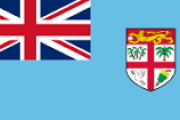DEVELOPED NATIONS ARE FAILING US - PM BAINIMARAMA
Prime Minister Josaia Voreqe Bainimarama has made it clear that the Pacific’s intention at the climate negotiation table is purely a “fight for survival”.
As the climate conference heads into its second and final week, the Prime Minister said he is not afraid to call out bigger nations who lack the courage or the wisdom to do what must be done.
He said it’s particularly crucial for the G20 nations who have chosen the right course to urge their counterparts to join the “wave of support” towards climate action.
Speaking at the ‘Partnership for Island Resilience Sharing Solutions in the Great Ocean States’ today, he said any nation that is at COP26 fighting for coal or other fossil fuels should be condemned for it.
“Developed nations are failing us. They are the ones with the resources and the technology to make a difference, yet they have left potential for clean energy and adaptation on the table by missing their 100 billion pledge two years running.”
“Among others, the USA is woefully short of paying its fair share of climate finance.
Now we – those most vulnerable – are told to suck it up and wait until 2023.”
Prime Minister Bainimarama also highlighted Fiji’s dedication to building climate resilience through a ground-breaking Climate Change Act. The newly-passed Act has legally-empowered Fiji to become net-zero, harness nature-based solutions, fortify Fiji’s infrastructure, and hold the private sector accountable while also unlocking its innovative potential.
Former President of the United States, Mr. Barak Obama while delivering his opening remarks emphasised the importance of promoting island resilience. He added that the 2015 climate talks had been crucial to the resulting Paris Agreement, which commits countries to holding the rise in the average global temperature to ‘well below’ 2 degrees Celsius above preindustrial levels.
"I am an island kid. I have been shaped by my experience growing up in Hawaii. While I was President, I was proud of the work that we did to work with island nations who are most vulnerable to changing climate. We have to act now to help with adaptation and resilience,” said the former President.
Prime Minister Bainimarama at the roundtable discussion also highlighted the Pacific and more so, Fiji’s climate action strategies.
“Pacific nations have collectively agreed to a declaration to preserve the sovereignty of our waters even if landmasses are lost entirely, Fiji has a trust fund for relocation that finances the movement of communities and infrastructure to higher ground and we have offered refuge to the people of Kiribati and Tuvalu in the event their nations are lost to the rising seas,” he said.
“Today, no nation can claim inaction out of ignorance. We have known about this threat for decades, and the most recent IPCC report has put a mountain of evidence behind the experiences my people have lived and confirmed our worst fears.”
Prime Minister Bainimarama also underscored Fiji’s climate policies, speaking on sustainable management of our ocean and the Environment, Climate Adaptation Levy (ECAL) and our partnership with the UK Space Agency and NORAD to enhance our ability to map sea-level rise, improve coastal development, manage climate-induced human migration, and perform hydrological and wind modeling to better understand our islands’ renewable energy potential.
“As we look to the work yet to be done this week, I want to close with a final message;
The Pacific’s intentions are pure here in Glasgow. We are fighting for that which is most sacred: our survival, and any nation that is here fighting for coal or other fossil fuels should be condemned for it because past 1.5 or two degrees of warming, even Fiji’s world-leading actions will not be enough to spare us untold suffering.”


